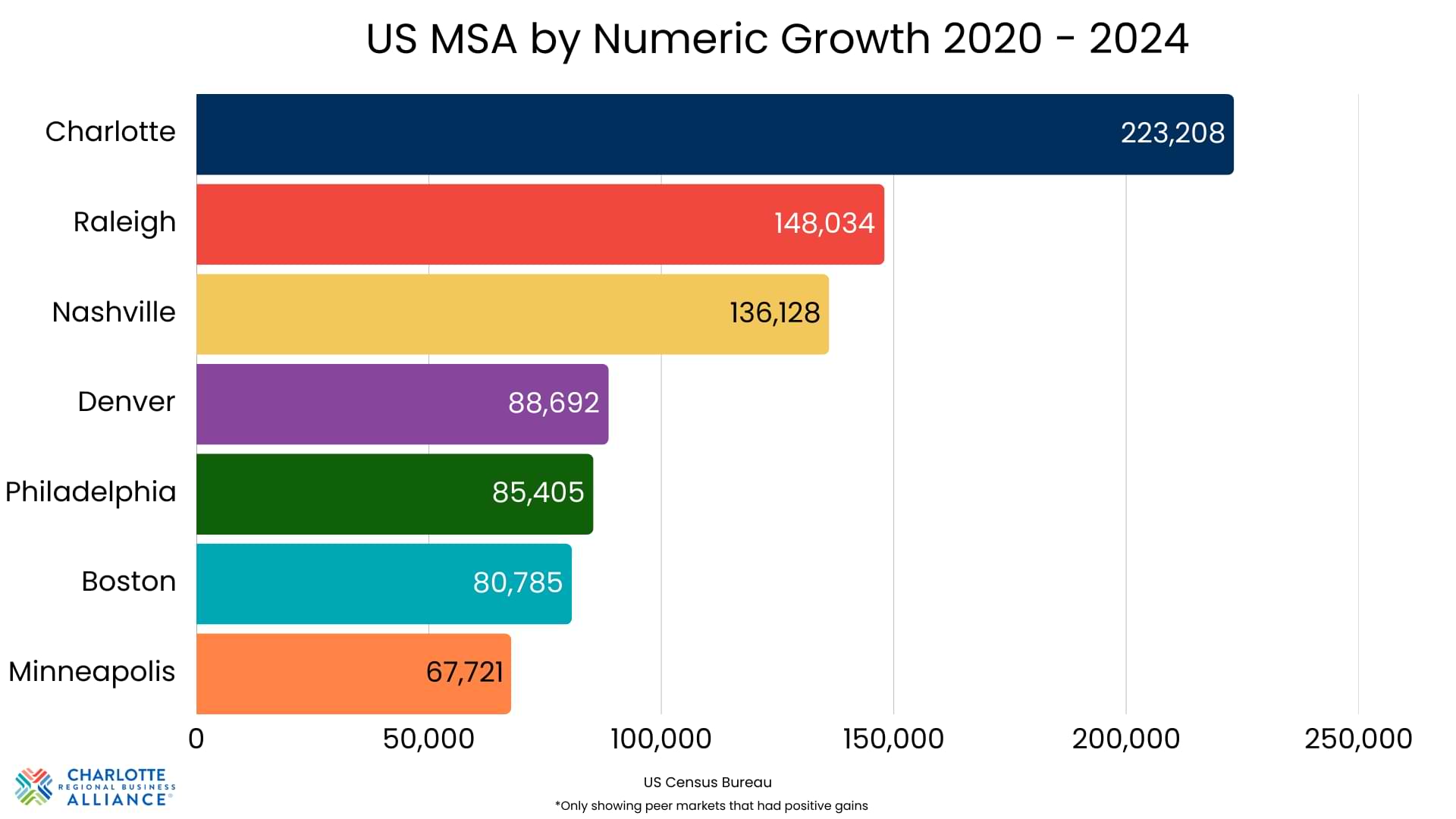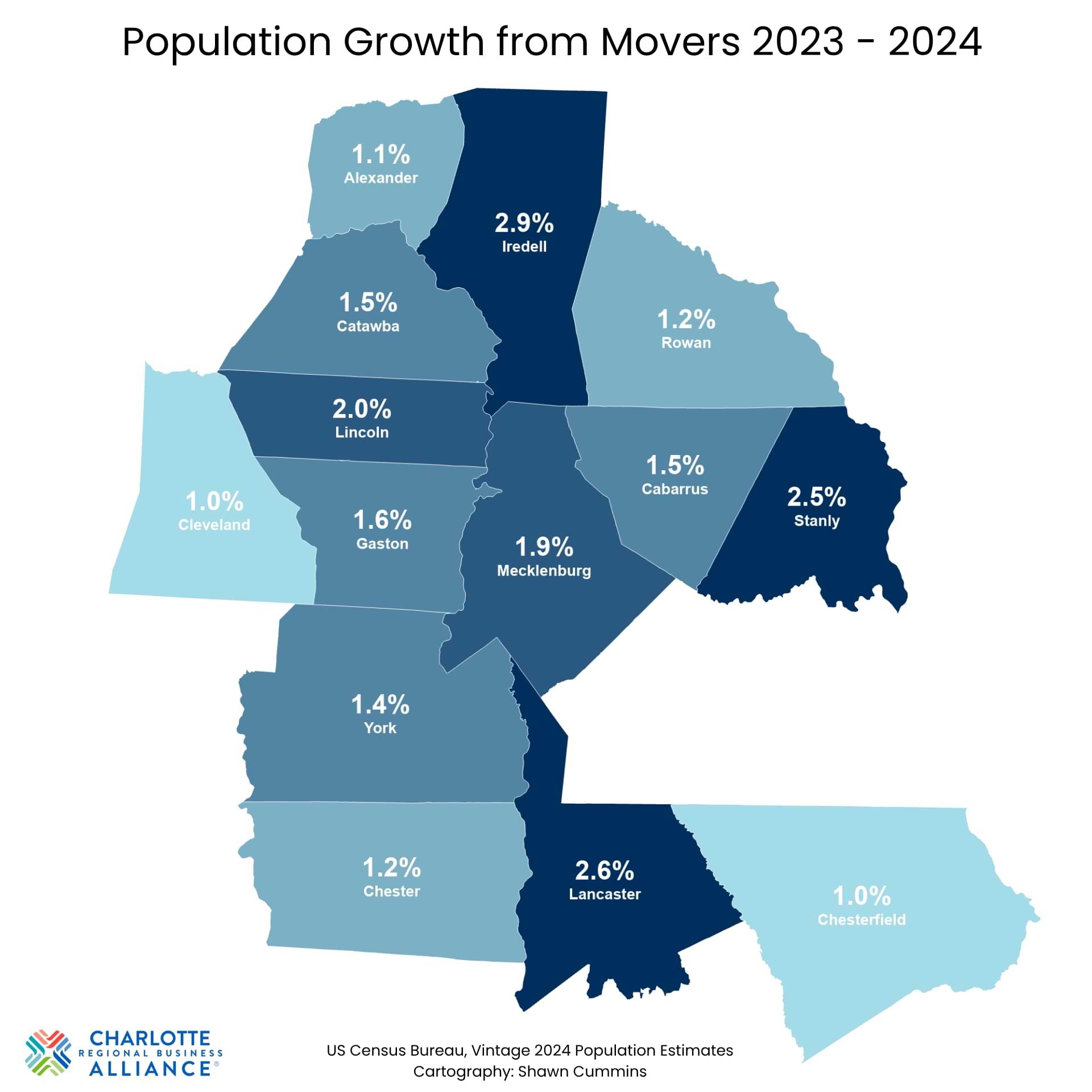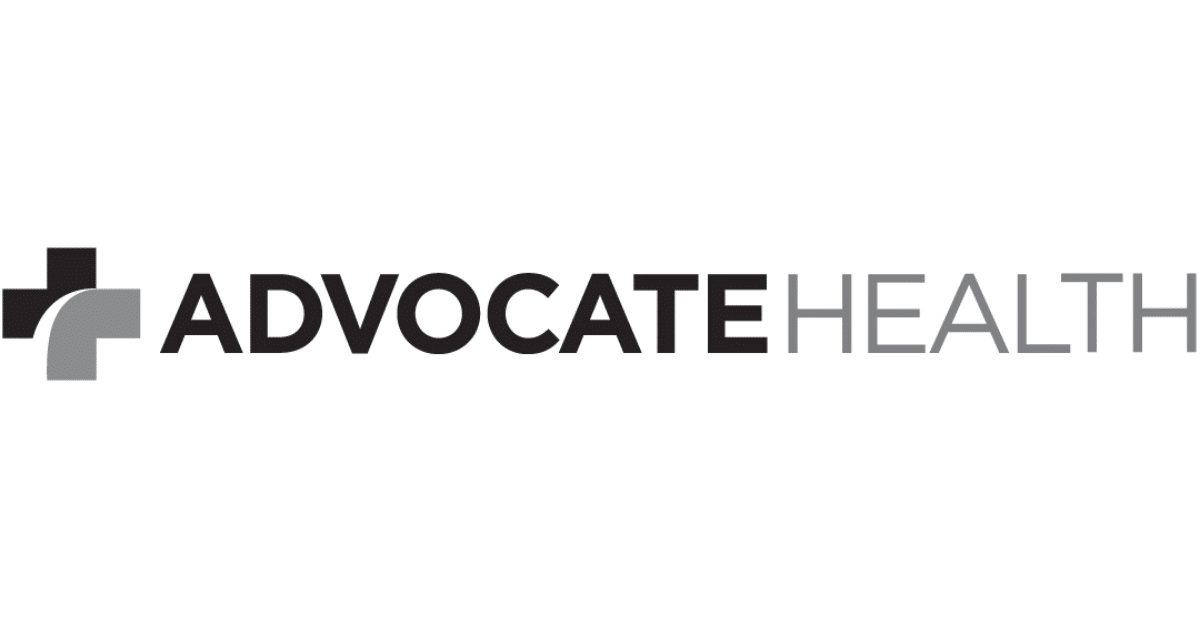On average, 157 people move to the Charlotte Region every day, according to a Charlotte Regional Business Alliance analysis of recent data. This consistent population growth underscores the region’s position as a powerful magnet for growth, matching or surpassing the momentum of some of the most dynamic markets in the country.
The data
Between July 1, 2023, and July 1, 2024, the Charlotte Region1 saw a net gain of 57,300 residents through migration alone, according to the U.S. Census. This surge equates to an average of 157 people moving to the region every day.
“The consistent flow of people moving to our region reinforces what we already know—Charlotte is a destination of choice,” said Tracy Dodson, COO and head of economic development at the Charlotte Regional Business Alliance. “Talent follows opportunity, and the Charlotte Region continues to deliver both. This momentum strengthens our position as one of the most competitive and dynamic markets in the country.”
Charlotte Metro growth vs national trends
Charlotte’s growing appeal reflects broader national migration trends favoring the South. According to the U.S. Census Bureau, during the same one-year period, nine of the 10 fastest-growing metro areas in the U.S. were located in the South.
The Charlotte-Concord-Gastonia, NC-SC metropolitan statistical area (MSA) ranked ninth nationwide in the number of people who moved to the area between 2020 and 2024. When compared to peer regions, Charlotte outperformed major competitors like Boston, Philadelphia, Nashville, Los Angeles, Raleigh, and Minneapolis in terms of net numeric migration—solidifying its position as a magnet for population growth and economic opportunity.
No county left behind in regional growth
Every county in the Charlotte Region posted positive population gains between 2023 and 2024, underscoring the widespread nature of the growth. Mecklenburg County led in numeric gains, adding approximately 22,000 residents via migration. Iredell and Union counties followed, growing by 5,900 and 5,200, respectively. In terms of percentage growth, Iredell County topped the list with a 3% increase, followed closely by Lancaster (2.6%) and Stanly counties (2.5%).
“The Charlotte Region’s flourishing economy and expanding population are a testament to its multifaceted appeal, catering to those seeking an ideal community to live, work, and thrive,” said Jenn Bosser, president and CEO of the Iredell Economic Development Corporation. “People are drawn to communities that offer a temperate climate, high-quality education and workforce, a diversified economy offering a spectrum of jobs, and a mix of urban and rural amenities. The growth of our region’s population is a key driver in our ability to attract new investment and job creation. Companies want to locate in communities that have a strong labor force to meet their near term and future workforce.”
Interestingly, movers were nearly balanced between domestic and international migrants, with 51% of new residents coming from within the U.S. and 49% arriving from abroad. This near-even split highlights the region’s increasing appeal not just nationwide but globally.
Moving and housing
The National Association of Realtors has ranked the Charlotte-Concord-Gastonia MSA as one of its Top 10 Housing Hot Spots for 2025.
“We are very fortunate; the Carolinas continue to be a preferred destination for in-migration,” said Gary Scott, president of Howard Hanna Allen Tate Real Estate. “Both companies and individuals recognize the opportunities here, which fuels the housing pipeline, and ultimately, translates into positive economic impact in numerous market sectors.”
Growth and infrastructure
The region’s sustained population surge highlights the urgent need for strategic infrastructure investment. North Carolina’s P.A.V.E. (Projects for Advancing Vehicle-Infrastructure Enhancements) Act, now ratified as House Bill 948 and approved by Mecklenburg County commissioners for the November ballot, directly addresses this urgency. It empowers Mecklenburg County residents to vote for a 1% local sales tax increase, projected to raise $19.4 billion over 30 years. This targeted funding strategy ensures that as the Charlotte Region continues to grow, its expanding transportation needs are met with robust, sustainable solutions.
Conclusion
With 157 people moving to the area every day, many from outside the U.S., it’s clear the Charlotte Region’s appeal extends far beyond national borders.
This level of growth isn’t just a reflection of momentum—it’s a call to action. As the Charlotte Region continues to attract people from across the country and around the world, smart, forward-looking investments like the transportation referendum will be critical to sustaining that growth. Yes for Meck is a bold transportation initiative that supports smart, efficient, and inclusive mobility. By voting yes, Mecklenburg County residents choose safer roads, reliable transit, more green lights, and better access. This plan is what residents need to protect economic mobility options and a high quality of life.
Learn more about the transportation referendum, including how to get involved, here.
1 The Charlotte Region is known as the following counties: Alexander, Cabarrus, Chester, Chesterfield, Catawba, Cleveland, Gaston, Iredell, Lancaster, Lincoln, Mecklenburg, Rowan, Stanly, Union, and York.




